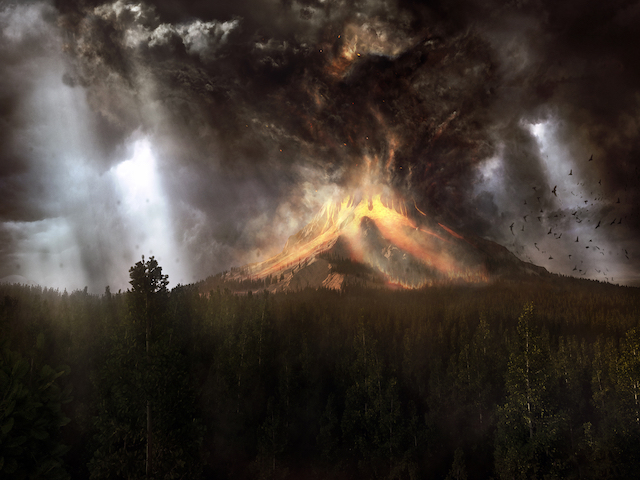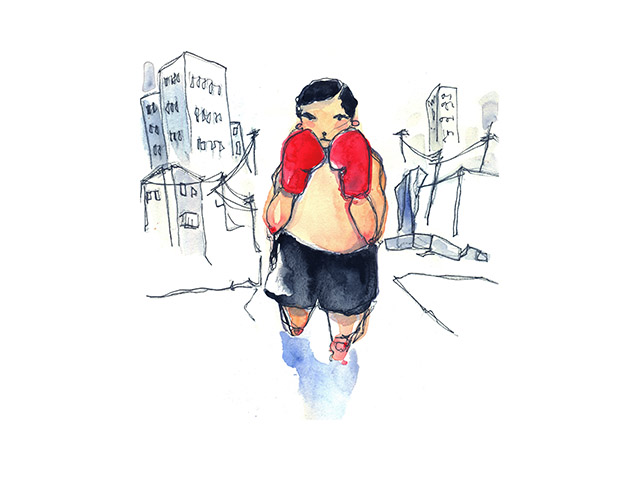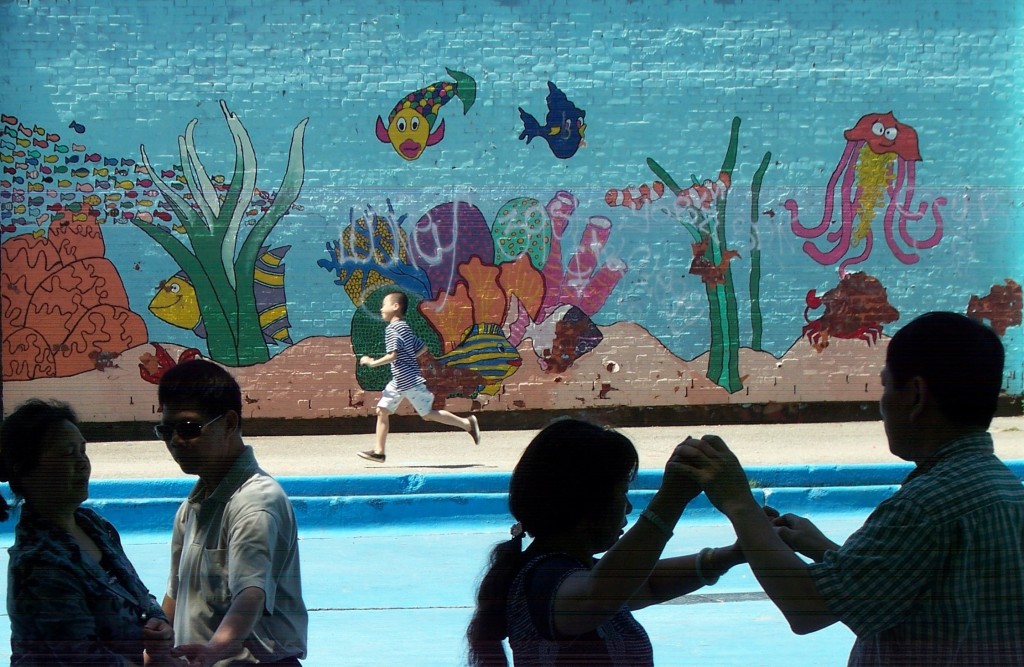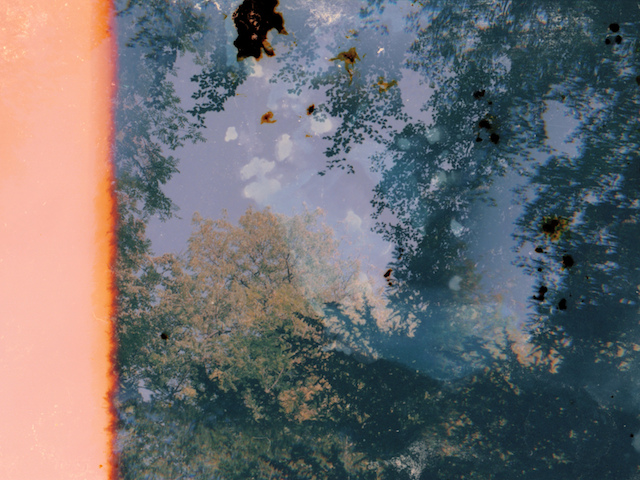When we point towards the horizon and say this is the color / of our grandfather, we do not know for how long // the night will carry your shade or what winds / brought you here.

April 19, 2016
Grandfather as a Kaiju on Fire
A year later your body still burns, still sends your skin up
as embers and gives the sky its disposition. When we point
towards the horizon and say this is the color
of our grandfather, we do not know for how long
the night will carry your shade or what winds
brought you here once dormant in a starless
chamber close to our volcanos. The day you fell, dragged
down by the imaginations of engineers we tasted
your smoke, pocketed hairs that wrapped
our throats, the tooth we ground into fertilizer, jealous
you became a powder that made strangers virile.
Science did not think of you as a body
to bury but a house made of flames. When asked
about the sound of your collapse, how the dust peaked
after your body went slack, we said we knew him mostly
by his fire, by the blood that could not be lit.
The Greeting
In Walmart, in Macy’s, when my father’s eyes take
the shape of a moon I have not seen, one covered
in smoke or storm, I know that look, that urge to gauge
a prospective countryman with a phrase I cannot call
my own, that carries the flames of a distant
countryside, whose roads are colors he does not see
anymore, here, amidst all of this abundance. There,
my father and a stranger stand surrounded by the latest
trends in length and texture, talk about mortgages,
about the taste of the air in unbearable humidity.
To the ones who do not recognize my father’s call
as their own, forgive him this loneliness, the islands
he thought he heard rattling in your throat, the glaze
on your skin he mistook for salt and ocean,
for volcanos and birds and the bones of giants.
Forgive him the street and all of its fires, the flood
in which his sister is always drowning. Into my hand,
my father shoves a fist full of shirt with “Made
in the Philippines” printed on its tag. Perhaps, we discuss
the murkiness under which such fabrics are produced.
No, the role of the son is not to strip such joy
from his father, who holds in his hand the horizon
as a second skin. Instead, how much pressure
does a needle need to penetrate this cloth,
to break the skin where a splinter rests?
When my father speaks, I dream of the color
of his tongue, how it contracts, isolated
in the darkness, enters the world already heavy
and blackened. I dream of all
the blood it takes to say hello.



